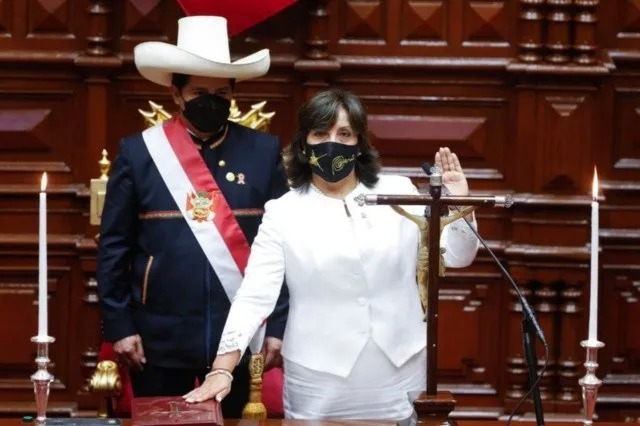Twenty years ago, then Peruvian President Alberto Fujimori, undertook a self-coup. He dissolved Congress and assumed complete control over Peruvian politics for the next eight years.
Fujimori began his term in office with a wave of successes. He had finally put an end to the carnage of Sendero Luminoso’s widespread terrorist activities as well as those of lesser terrorist groups and successfully jump-started the economy after the disastrous administration of his predecessor Alan Garcia.
But, also during his time as dictator, Fujimori undertook a program of political repression, arrests, and state sponsored murders.
Returning Peru back to the path of democracy took eight years of hard work by the Organization of American States (OAS) and many of its member governments as well as millions of Peruvians.
I accompanied the joint official OAS/Canadian Mission to Peru in 2000 when I served as then Secretary General Cesar Gaviria’s and Canadian Foreign Minster Lloyd Axworthy’s Spokesperson and saw how the lengthy negotiations proved both difficult and complicated.
We saw first-hand the determination of Fujimori to remain in power until damning videos taken by his security advisor Vladimir Montesinos surfaced showing Fujimori and his key operatives, including his son Kenji, discussing their corrupt practices.
Fujimori then decided to go to Japan, where he also had citizenship, and resign by fax. His resignation was not accepted by Congress, declaring him to have abandoned his post. When he travelled to Chile in 2005 to prepare another run at the Presidency, he was instead arrested on a warrant issued by Peruvian justice authorities and extradited to Peru. He was tried and sentenced to twenty-five years for an assortment of crimes.
Reading: Presidents knocked down like cards, this is the recent history of Peru
Two weeks ago, Peru’s then leftist President Pedro Castillo tried to do the same thing. He dissolved Congress and tried to take full power. This time the effort proved unsuccessful. The Congress applied the constitution, removed him from office and blocked his route to the Mexican Embassy where he was going to try to obtain asylum. Vice President Dina Boluarte was sworn in as per the constitution.
Since his election, Castillo was never accepted by the white economic and social elites. In fact, many tried to actively block his ascension to office. Congress had and continues to have an overwhelming right-wing majority, and this led to complete political gridlock. The right plotted to oust him. He acted to forestall this. He lost the gambit. He is now under arrest and in jail.
Peru is a highly polarized country. Violent demonstrations are taking place throughout the country as the urban and rural poor see their hope of democratic and social reform frozen by a system that is broken.
Boluarte has her work cut out for her. Her neighboring states are divided in their reaction to this constitutional move by the Congress that has resulted in her presidency.
Colombia, Argentina, Bolivia and Mexico have issued a joint statement that condemns the process and calls Castillo’s ouster a coup. Brazil’s incoming President Lula da Silva and Chile’s President Gabriel Boric support the change of government although they too are left wing leaders.
This situation illustrates what I consider to be the fundamental political challenge facing the region.
Political parties no longer subscribe to governing by consensus, reaching across the aisle, and seeking out broader policies that can benefit all citizens. More and more political parties are preaching hatred and division. Opposition parties are labelled political enemies rather than respected as a loyal opposition. Leaders govern for their own voters and against those who didn’t vote for them.
Peru has had five presidents since 2017, and signs are that this trend will continue until the political class develops the emotional intelligence required to govern effectively for all.
The country is in chaos and some 85% of the population agree that elections must be held soon to avoid further violence and instability.
On a broader front, leaders in Peru and throughout the world must accept that constitutions aren’t there for cherry-picking. All parties to governance must abide by all aspects of their constitutions, respect democratic institutions fully, and learn to work together to achieve national goals.
Absent this, governments will continue to rise and fall at the expense of much-needed economic and social development, and governments will continue to fail to meet voters’ expectations.
Keep reading: It’s the Economy, Stupid!
Edition: Mirna Abreu
Destacó una baja del 50 por ciento en homicidios y anunció nuevos planteles educativos en su visita al noroeste
Ana Ramírez
El apoyo permite detonar inversión sin recurrir a recursos fiscales
Ana Ramírez
El gremio busca capitalizar el interés del público durante los días de partidos
Ana Ramírez
El presidente del Consejo Empresarial aseguró que el gremio percibe un ambiente de coordinación en los tres niveles de gobierno
Ana Ramírez
